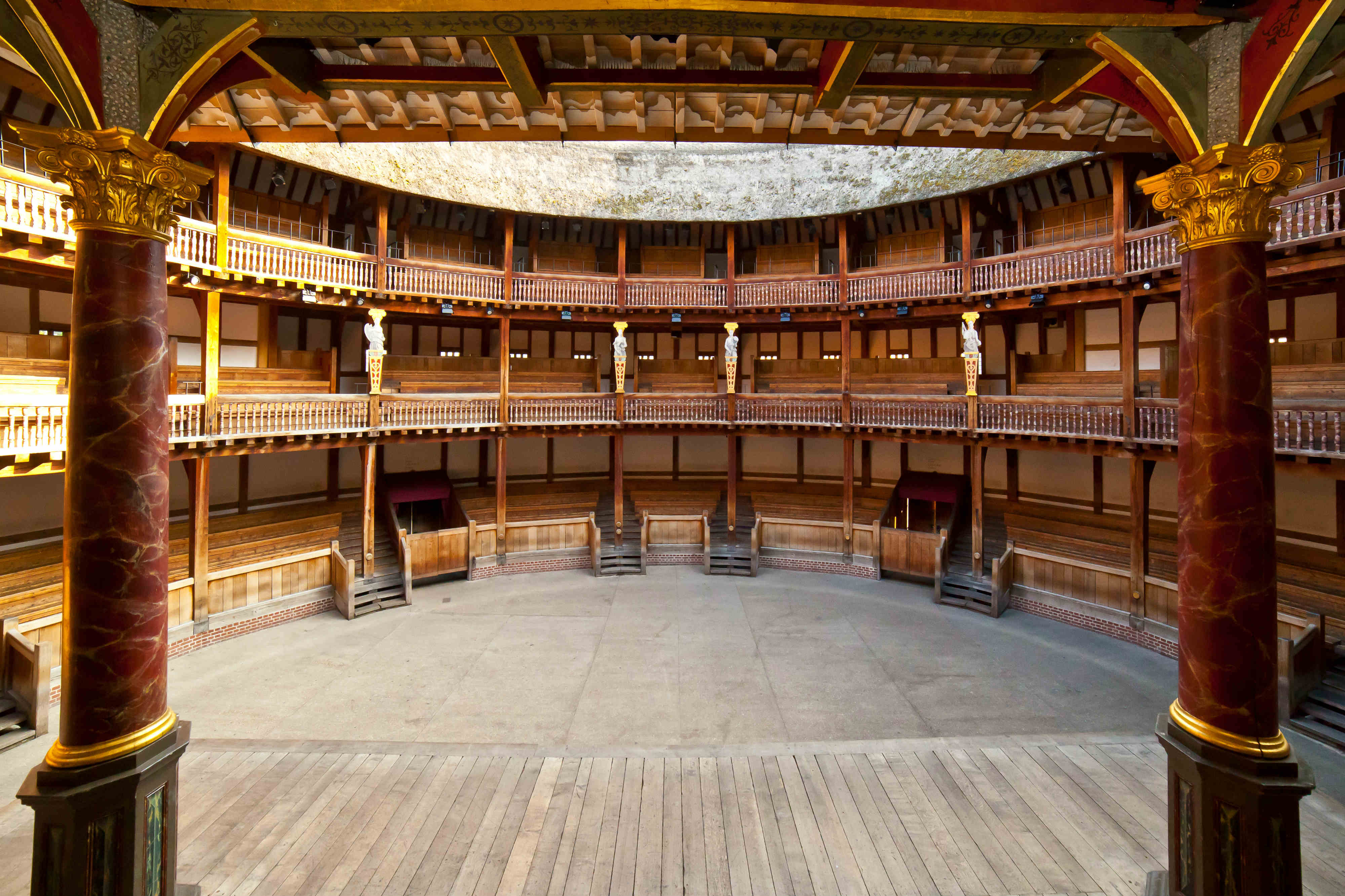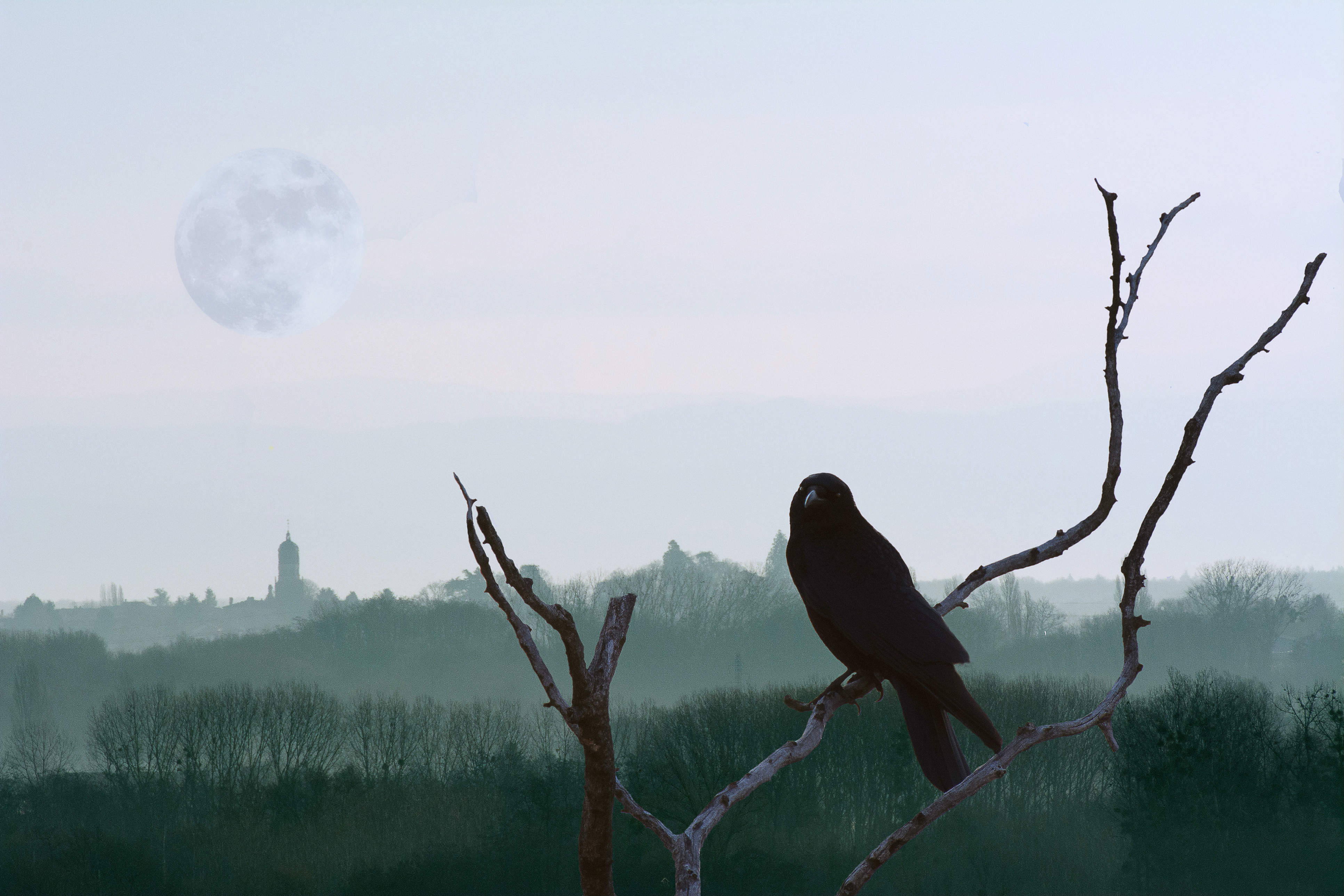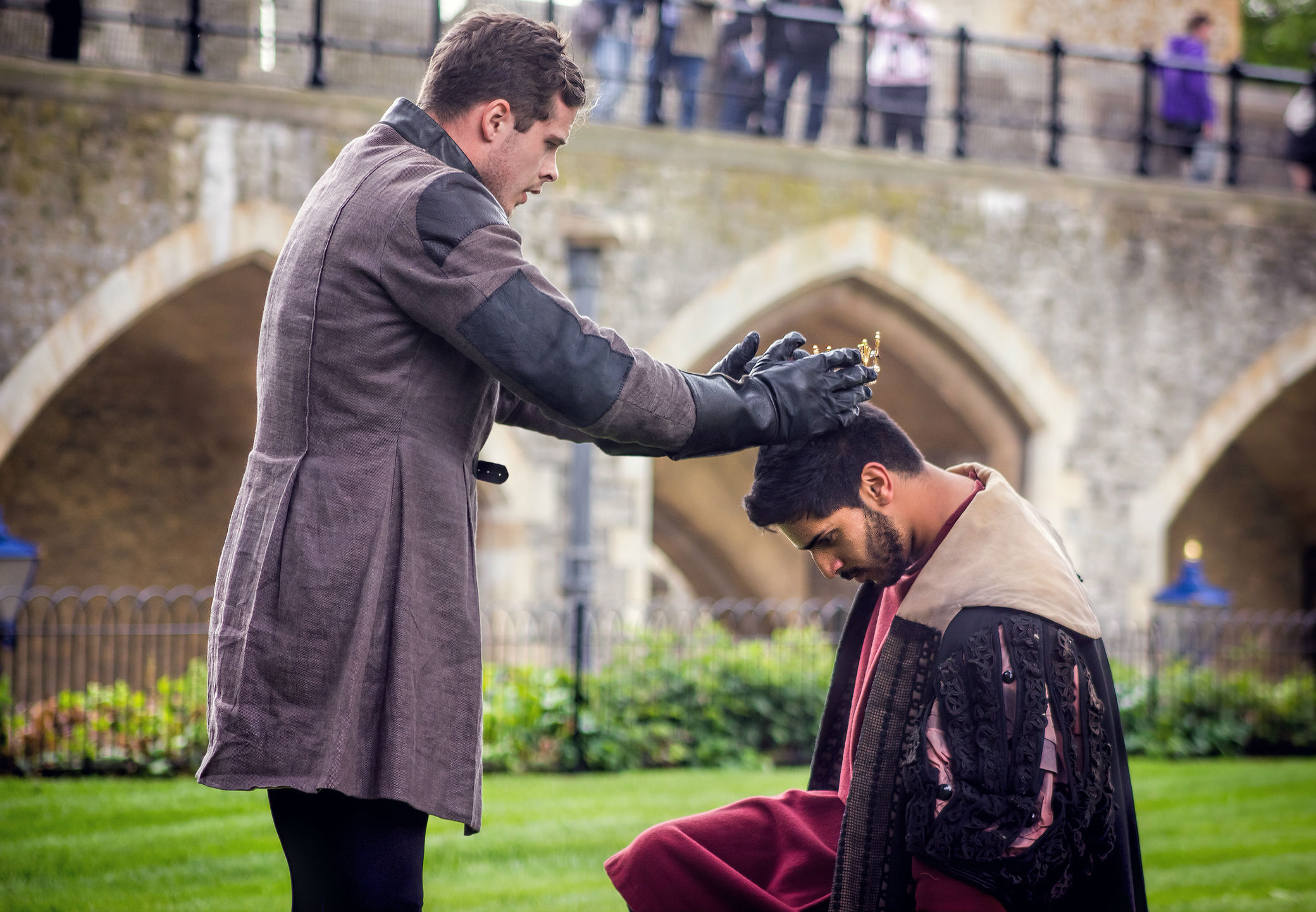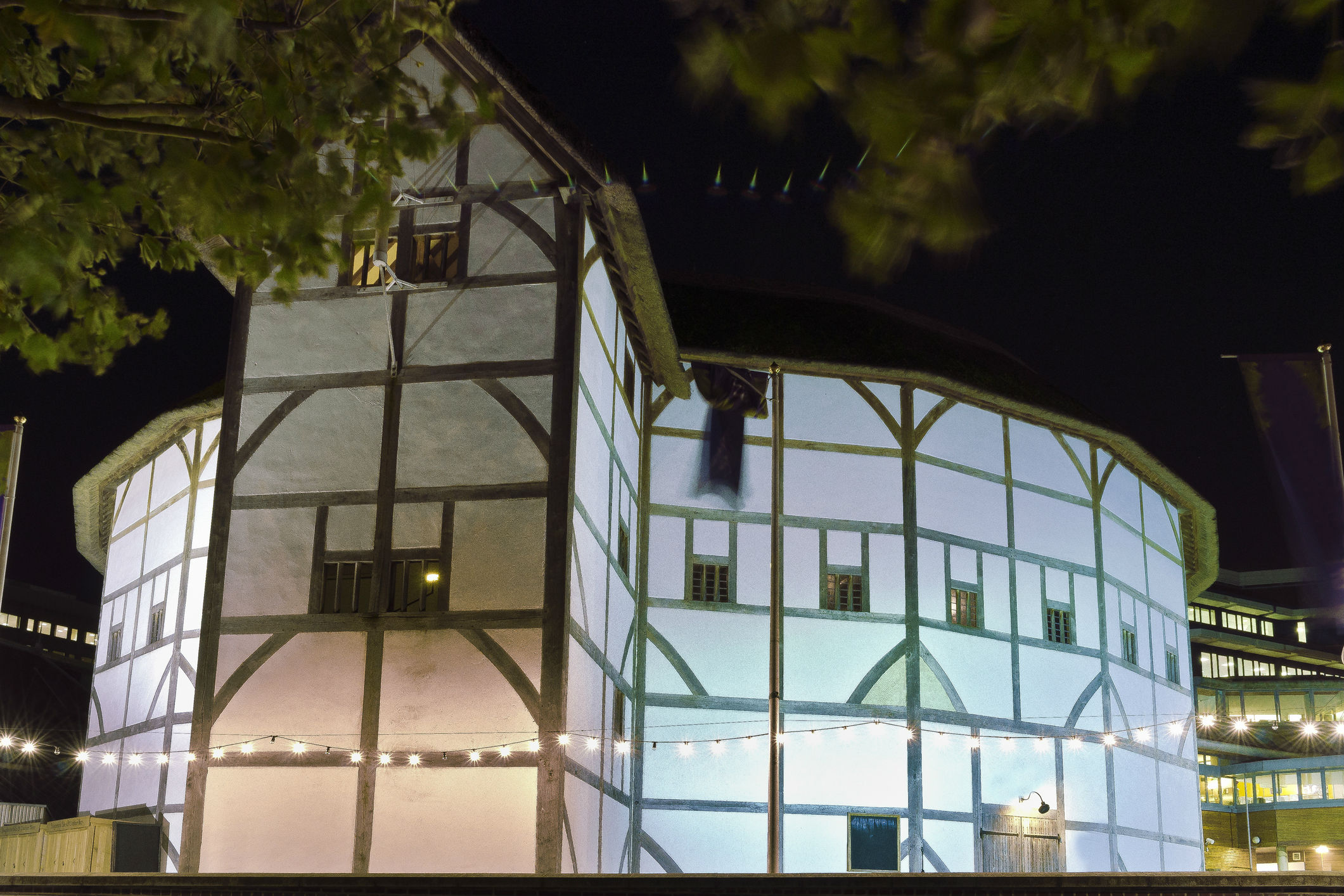- Home |
- Search Results |
- The curse of Macbeth: is it more than superstition?
The origins of a legend

One theory is that the play was cursed when Shakespeare used elements of ‘real’ spells in the scenes that feature the witches. Some say that simply including the spells was enough to put a jinx on Macbeth, others that the witches became angry that the spells used were incomplete, and cursed the play to exact their revenge.
While she can't confirm the existence of black magic, Dr. Anjna Chouhan of the Shakespeare Birthplace Trust says it's possible that Shakespeare could have gathered ideas for those scenes from real encounters. ‘He'd have come across people who dabbled in herbal treatments and medicines. He would have been inspired by something,’ she says.
The idea may have been fuelled by the fact that the witches' verse is written in tetrameter, with four rhythmic ‘feet' to each line. As Shakespeare's verse usually uses pentameter, it’s unusual and ‘sounds a bit witchy’, says Bellwood. Some academics think this indicates that the scenes were not written by Shakespeare, though no one has yet found evidence that their true authors were witches.
In any case, portraying witchcraft onstage was a bold move in 1606. In a largely uneducated society, heavily influenced by the church, most people believed in magic. England's new King, James I, had even published a book – Daemonologie – outlining his plan to root out the scourge of witchcraft.
‘The play opens with witches, and shows them casting a spell. For a lot of people, that would have been very close to home,’ Chouhan explains. ‘Book-learning and science were misunderstood; people were suspicious of them. Very learned people were often called wizards. So opening a play with weird sisters casting a spell with horrible ingredients – “eye of newt and toe of frog” – it scared people.’
A series of unfortunate events

As well as the folklore, there are practical reasons to link Macbeth with misfortune. It has always been one of Shakespeare's most popular plays, and that has statistical implications, says Chouhan. ‘It tends to run for longer than, say, Cymbeline. When you have more performances, it's statistically more likely that things will go wrong.’
Then there are the action scenes – notably the complicated sword fight between Macbeth and Macduff. Is the play simply more dangerous to perform?
Macbeth has certainly had its fair share of mishaps. Theatre manager Lilian Baylis died on the night of the dress rehearsal for the Old Vic's 1937 production starring Laurence Olivier. A falling stage weight just missed landing on Olivier; then the director and the actress playing Lady Macbeth were involved in a car crash. The play's opening was postponed, and on its first night Baylis' portrait fell off the theatre wall. ‘They used real weapons, and one flew into the audience, giving someone a heart attack,’ adds Chouhan.
In 1942, three actors died during the run of the Piccadilly Theatre's version, starring John Gielgud. The costume designer committed suicide.
‘And one of the most infamous incidents actually had very little to do with the play itself,’ says Chouhan. ‘In 1849, a much-loved English actor-manager called William Macready was touring in Macbeth in America. He had developed a rivalry with an American actor called Edwin Forrest, who was equally well-loved in America and was starring in another version. When Macready went to perform at the Astor Opera House in New York, Forrest's supporters showed up. The performance had to be heavily policed. Macready went onstage and riots broke out. Soldiers fired into the crowd – about 20 people died.’
However, the most intriguing story is the one that surrounds the play's first performance by Shakespeare's own company, in which the actor due to play Lady Macbeth is said to have died shortly before the first performance.
This, says Chouhan, is ‘all just a myth’.
‘In the 19th century, Macbeth was a particularly popular play, and some critics were getting fed up with it. One was Max Beerbohm, a cartoonist and critic. He made up a story that the actor playing Lady Macbeth in the first production had died. It was a parody of the way scholars take evidence from the period; of what George Bernard Shaw called ‘Bardology’. But everyone believed it, and that's where the myth of bad luck began.’
Counteracting the curse

Chouhan believes that the play's supernatural content created the conditions for the legend to stick.
‘All sorts of things happen in all plays, but because it's a play about witchcraft, the occult, the uncanny – these incidents all compound to make a very compelling myth. People will always talk about mishaps that happen in Macbeth, but if someone had fallen off the stage in The Comedy of Errors, would anyone have talked about it?’
So maybe the play's not unlucky after all. But if you don't fancy taking any chances, everyone agrees on the best way to counteract the curse. Simply go outside and run around the theatre (or spin on the spot) three times, spit, then swear or quote a line from another Shakespeare play. Finally, wait to be invited back into the theatre.
‘The customs are about purging, getting something out,’ says Chouhan. ‘And having to be invited back into the theatre is linked to the vampiric tradition.’
A culture of superstition

Bellwood has seen such rituals performed at the Globe: ‘A tour group said the name of the play in the theatre once. The actors were warming up onstage, and one went flying out of the room.'
He continues, ‘There are plenty of brilliant actors and directors who won't touch that word, or any lines from the play. We're just not tempting fate.’
The Globe has hosted international versions of the play, and Bellwood says the superstition translates to cultures beyond the UK. He adds that it also has an interesting manifestation in sign language.
‘When we workshopped a short version of Macbeth in British Sign Language, I asked: “What's ‘Macbeth’ in BSL?” Interestingly, it is the same as the sign for ‘Scotland’. So even though the superstition isn't transmitted orally to Deaf actors, the title is censored in the language itself – the Deaf actors I know have used the term ‘The Scottish Play’ rather than Macbeth.’
Bellwood confirms the industry has a widespread cultural belief in superstition: ‘As a performer, you want luck on your side. People in theatre are generally quite superstitious; lots of actors will have their own rituals.'
'At the Globe, we're even architecturally superstitious. There's cosmology built into the theatre. If you look at the stage, the idea is that we are performing between the heavens and hell, and at the top of the arch, in the centre, is a portrait of Fame, which we perform underneath. You can see that she is carrying two trumpets - one is said to broadcast the bad things people say about you, the other amplifies the good things. When we're designing a production, we try not to cover her portrait - we want her to blow the good trumpet, so it needs to be on show.'
Maybe it's time we turned to the data. The Globe has staged six Macbeths since 2001 – have those productions involved more mishaps than its five Hamlets or six Much Ados?
‘Actually, no,’ says Bellwood. ‘In a season, it can often feel like one show has a bit of a jinx — lots of things will keep going wrong. But, weirdly, none of these have been ‘that' show.’
So, knowing all this, does he still believe the play is unlucky?
‘I wouldn't risk it! I've never risked saying the name, or quoting the play, inside the theatres. After the Riverdance incident, I wouldn't want to say it and then have something horrible happen onstage. It's self-protection.’